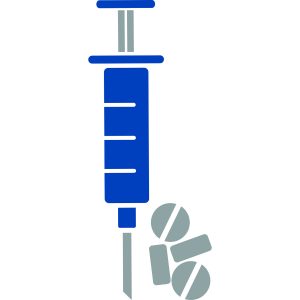Province-wide pilot project aims to refine addiction treatment
By Roshni Riar, Staff Writer
Best Practices in Oral Opioid Agonist Therapy (BOOST) has been expanded province-wide in an effort to combat the opioid epidemic.
Put together in collaboration with Vancouver Coastal Health and the BC Centre for Excellence in HIV/AIDS (BC-CfE), the program follows the structure of the BC-CfE’s successful HIV/AIDS epidemic reduction strategy introduced in the ’80s and ’9os. The model has also been successfully used to help patients with chronic illnesses like diabetes and tuberculosis.
In April 2016, BC declared a province-wide opioid health emergency. Since January 0f that year, there have been over confirmed deaths from opioid drug overdoses.
BOOST was developed in response to the epidemic. The initiative involves everyday support such as taking patients to important appointments, following up regularly to keep them on track in their recovery and accountability, and supporting the search for basic needs like employment, housing, and prolonged medical care.
A key component of BOOST focuses on helping recovering addicts transition into opioid substitution programs—Opioid Agonist Therapy (OAT)—utilizing drugs like methadone and suboxone. BOOST was originally an 18-month pilot project that saw 1,100 patients in 17 treatment clinics across BC. Now, due to the success of the original project, it will be able to accommodate more patients.
Dr. Rolando Barrios, BC-CfE’s Senior Medical Director, said he thinks treatment is critical in prevention. By allowing patients a safe opioid substitution, the need to illegally acquire drugs is reduced. The substitution also helps to alleviate the uncomfortable withdrawal symptoms that drive people to continue using.
In the pilot project’s 18-month trial, the use of OAT in collaboration with the social and personal supports saw success rates of 70 percent, with 7 out of 10 patients maintaining sobriety and adhering to the program at the three-month mark. This is a significant increase from previous figures, which sat at an average 30 to 40 percent success rate.
In an interview with the Other Press, Riley Cole*, a first-year Anthropology student at Douglas College, shared their thoughts on the project announcement.
“I think this is an important and good step,” they said. “Tracking recovering addicts, ensuring they are treated in safe conditions, and ensuring they have access to safe supplies of drugs like methadone and suboxone are critical in avoiding immediate harm or long-term detriment. The increased level of support will help people obtain sobriety.”
Weighing the steps that the province has taken to combat the opioid crisis, Cole thinks there still is a lot more work for the government.
“This is a start,” they said. “It’s a great first step but more needs to continue to be done. A comprehensive strategy needs to be developed, targeting what is causing these addictions and these deaths, how these drugs are obtained and from whom. In the future, I feel that steps towards decriminalization would help addicts secure these newly implemented treatments without fear of repercussion or prosecution.”
*Interviewee’s name was changed upon request due to sensitive subject



